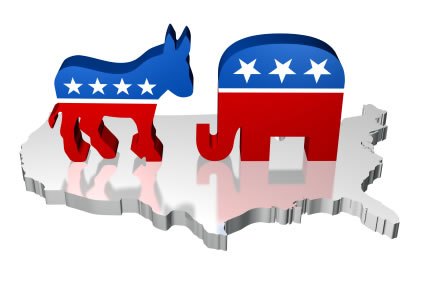Taking stock of the national debt

Most Americans agree that we’ve got a financial problem in this country, although we’re not all in accord about what kind of a problem it is – deficit spending or low economic growth. Politicians like to provide answers with nicely packaged talking points that work a bit like fast food – momentarily satisfying, but hardly nutritious. Political talking points often fudge the facts – especially when dealing with complex issues such as budgets and deficits.
One fact that is eminently clear from a study of the last few decades of U.S. governance is that genuine cost controls will only be achieved when opposing parties cooperate; conversely, the absence of cooperation is sure to bring about failure.
Here are some typical talking points that have led many voters astray:
Talking Point: We have a spending problem, not a revenue problem.
Reality: U.S. budget figures show that we are not spending a higher percent of our GDP than we’ve spent in the past. Our GDP has grown dramatically since the 1960’s and our federal outlays have grown at a much slower pace. We are currently having a problem paying for the services required to meet entitlements such as Medicare, Medicaid and Social Security, and to pay for massive increases in military spending, but our economy could choose to absorb these costs or work out ways to lower them through efficiencies and innovations.
Talking Point: Republicans are good for business; Democrats are bad for business.
Reality: “The Democrat administrations achieved the three fastest rates of growth and four of the top five on that ranking," wrote Larry Greenberg in the September 2008 issue of Currency Thoughts.
"Real GDP advanced at an annualized rate of 5.2% during the Kennedy years, 5.1% during the Johnson years, and 3.6% when the Clinton administration was in power. GDP rose 3.5% per annum in the Reagan years despite a severe recession in 1981-2. Growth averaged a respectable 3.2% per annum when the Carter administration governed — and yes, some people no doubt were better off in 1980 than 1976 — and the Nixon years experienced growth of 3.0% per annum. In none of these presidential periods was growth substantially less than the 3.4% average pace for the whole second half of the 20th century. Both Bush presidential periods and the Ford years experienced growth of barely more than 2.0%.”
Talking Point: Democrats will do anything to protect Social Security and Medicare; Republicans are out to destroy it.
Reality: President George W. Bush sent to Congress and pushed through the most expensive addition to Medicare in its history, the Medicare prescription drug plan. On the other hand, President Clinton has been excoriated by Daily Kos and other far left Democratic publications for his stated desire to trim the costs of Medicare, Medicaid and Social Security.
Talking Point: President Obama tripled the national debt in his first few months in office.
Reality: The national debt increased 35 percent during President Obama’s first 30 months in office, but it had increased 40 percent during President Bush’s final term in office. Realistically, the momentum created by one administration cannot be instantaneously stopped without causing a dire effect on the economy – especially in a recession.
Talking Point: America’s taxes are the highest in the world.
Reality: While taxes may seem high to you and me, in terms of GDP, they are actually lowest among the 15 most developed nations.
Debt-Causing Culprits: Medicare, Medicaid, Social Security, Military Spending, Recession
These are the five major causes of our debt crisis. Medicare, Medicaid and Social Security are directly related to our aging population and the rising cost of healthcare. Military spending has spun nearly out of control since the tragic events of 9/11 and the United States’ attempt to intercede against terrorists around the world.
In fact, between 2001 and 2009, increases in military spending were second only to Medicare at the top of the federal list, and lagged the seniors' health care plan by a mere .1 percent. Since 2000, DOD spending has increased from $300 billion to more than $700 billion, of which approximately $175 billion is currently credited to overseas wars. During those same years, Medicare and Medicaid have increased from $312 billion to nearly $800 billion, and Social Security has grown from $524 billion to $721 billion.
Perhaps the top cause of government debt is the lack of tax receipts that occur when the economy hits a rough patch. Since the Great Depression in 1929, this nation has suffered through 12 recessions and numerous lesser downturns. Those recessions began under four Democratic administrations and six Republican administrations. Until recently, these downturns have lasted only a year or two. But in 1988, we experienced a recession lasting nearly four years based on the collapse of junk bonds.
Toward the end of George W. Bush’s second term in 2007, we suffered a massive housing bubble burst and the near collapse of our banking system. While economists consider that recession to have ended in technical terms in 2010, most Americans continue to feel its effects, and many politicians still wrestle with the right way to deal with this massive downturn.
So, should we spend more to stimulate the economy or curtail spending to reduce our debt? Whatever choices we make must be driven by facts rather than pre-packaged talking points. It behooves all Americans to pay close attention to the details.





